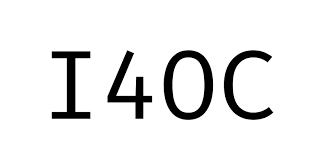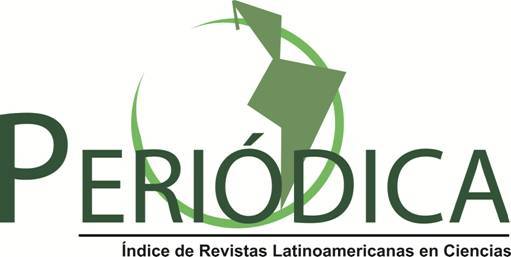Desarrollo de una tortilla adicionada con harinas de aguacate y nopal y su efecto en la reducción de colesterol, triglicéridos y glucosa en ratas
DOI:
https://doi.org/10.18633/biotecnia.v21i2.909Palabras clave:
Tortilla, nopal, aguacate, dislipidemias, glucosaResumen
El sobrepeso, obesidad, afecciones cardiovasculares, dislipidemias, hipertensión, diabetes y cáncer son un problema mundial de salud. Se sugiere para su prevención una alimentación sana y estilo de vida saludable. En este estudio se elaboró una tortilla de maíz a partir de 90 g de masa con 2.5g de harina de nopal y 2.5g de aguacate liofilizado, y se evaluó su efecto reductor de colesterol, triglicéridos y glucosa en ratas Wistar. Se formularon tres dietas: Referencia (DR), que incluyó todos los ingredientes que los roedores requieren para su mantenimiento, Control (DC), en donde se indujo hipertrigliceridemia e hipercolesterolemia, y una dieta con la tortilla (DT) donde también se les indujo hipertrigliceridemia e hipercolesterolemia. Los animales que fueron alimentados con DT disminuyeron sus valores de colesterol total (25.8%), triglicéridos (30.8%), y el colesterol-LDL (72.9%) con respecto a DC. También hubo disminución de glucosa en los animales alimentados con DT en comparación con los alimentados con DC (31.85%) y DR (32.84%). Los animales que fueron alimentados con DT en comparación con DC presentaron mayor concentración de lípidos en heces y mayor humedad, 56.2% y 311%, respectivamente, y un 10.4% menos concentración de lípidos en hígado. La adición de harinas de aguacate y nopal fueron efectivas en reducir las concentraciones de colesterol, triglicéridos y glucosa en ratas.
Descargas
Citas
AOAC. 1990. Official Methods of Analysis. 15th Edition. Association of Official Analytical Chemists. Washington DC. USA.
Butterweck, V., Semlin, L., Feistel, B., Pischel, I., Bauer, K. y Verspohl, E. 2011. Comparative evaluation of two different Opuntia ficus indica extracts for blood sugar lowering effects in rats. Phytotherapy Research. 25: 370–375.
De Smet, P. 2002. Herbal remedies. The New England Journal of Medicine. 347: 2046-2056.
Dreher, M. y Davenport, A. 2013. Hass avocado composition and potential health effects. Critical Reviews Food Science and Nutrition 53: 738-750.
ENSANUT. 2016. http://promocion.salud.gob.mx/dgps/descargas1/doctos_2016/ensanut_mc_2016-310oct.pdf
Feugang, J., Konarski, P., Zou, D., Stintzing, F. y Zou, C. 2006. Nutritional and medicinal use of cactus pear (Opuntia spp.) cladodes and fruits. Frontiers in Bioscience. 11: 2574–2589. PMID: 16720335.
Gil, A. 2010. Tratado de Nutrición. Tomo 2. Composición y calidad nutritiva de los alimentos. Capítulo 18. Complementos alimenticios. Editorial Panamericana. 2° Edición. 483-484.
Hahm, S., Park, J. y Son, Y. 2011. Opuntia humifusa stems lower blood glucose and cholesterol levels in streptozotocin-induced diabetic rats. Nutrition Research. 31: 479−487.
Kuo, S. 2013. The interplay between fiber and the intestinal microbiome in the inflammatory response. Advances in Nutrition. 4: 16–28.
Martinez-Flores, H.E., Kil Chang Y., Martinez-Bustos, F. y Sgarbieri, V. 2004. Effect of high fiber products on blood lipids and lipoproteins in hamsters. Nutrition Research. 24: 85-93.
Medina, T., Vernon, C., Gallegos, I., Rocha, G., Herrera, V., Calderas, F. y Jiménez, A. 2011. Study of the antioxidant properties of extracts obtained from nopal cactus (Opuntia ficus-indica) cladodes after convective drying. Journal Science Food and Agriculture. 91: 1001–1005.
Morán, R., Avila, N., Tovar, A., Pedraza, C., López, R. y Torres, N. 2012. Opuntia ficus indica (nopal) attenuates hepatic steatosis and oxidative stress in obese Zucker (fa/fa) rats. Journal Nutrition. 142: 1956−1963.
NOM-062-ZOO-1999. Norma Oficial Mexicana. 1999. Especificaciones técnicas para la producción, cuidado y uso de los animales de laboratorio. Diario Oficial de la Federación. México.
Nuñez, L., Paredes, L. y Reynoso, C. 2013. Functional and hypoglycemic properties of nopal cladodes (O. ficus indica) at different maturity stages using in vitro and in vivo tests. Journal Agricultural and Food Chemistry. 61: 10981−10986.
OMS. Organización Mundial de la Salud. 2016. http://www.who.int/mediacentre/factsheets/fs311/es/
Padmanabhan, M. y Arumugam, G. 2014. Effect of Persea americana (avocado) fruit extract on the level of expression of adiponectin and PPAR-γ in rats subjected to experimental hyperlipidemia and obesity. Journal of Complementary and Integrative Medicine. 11: 107–119.
Pahua, R., Garduño, S., Dorantes, Á., Chamorro, C., Herrera, M., Osorio, E. y Ortiz, M. 2014. Reduced calorie avocado paste attenuates metabolic factors associated with a hypercholesterolemic high fructose diet in rats. Plant Foods for Human Nutrition. 69(1): 18–24.
Pee, W., Kai, Z., Gruenwald, J. y Uebelhack, R. 2014. A review of the efficacy and safety of litramine IQP-G-002AS, an Opuntia ficus-indica derived fiber for weight management. Evidence Based Complementary and Alternative Medicine. Article ID 943713.
Prosky, L., Asp, N., Scheweizer, T., Devries, J. y Furda, I. 1988. Determination of insoluble, soluble, and total dietary fiber in food and products. Interlaboratory study. Journal Association Official Analytical Chemist. 71: 1017-1023. PMID: 2853153
Reeves, P., Nielsen, F. y Fahey, G. 1993. AIN-93 purified diets for laboratory rodents: final report of the American Institute of Nutrition ad hoc writing committee on the reformulation of the AIN-76A rodent diet. Journal Nutrition. 123: 1939–1951. PMID: 8229312
Sánchez, I., Reynoso, C. y Salgado, L. 2015. The diet-induced metabolic syndrome is accompanied by whole-genome epigenetic changes. Genes and Nutrition. 10: 471.
SAS. Statistical Analysis System. 2004. SAS User’s Guide, version 9.13, SAS Institute Inc., Cary, NC, USA.
Seema, P. 2014. Opuntia cladodes (nopal): Emerging functional food and dietary supplement. Mediterranean Journal of Nutrition and Metabolism. 7: 11-19.
Tabeshpour, J., Razavi B. y Hosseinzadeh, H. 2017. Effects of avocado (Persea americana) on metabolic syndrome: a comprehensive systematic review. Phytotherapy Research. 31: 819-837.
USDA. 2018. U.S. Department of Agriculture. Avocado. Nutrient Data Laboratory. National Nutrient Database for Standard Reference. U.S. Department of Agriculture. Washington, DC. https://ndb.nal.usda.gov/ndb/search/list.
Wang, L., Bordi, P., Fleming, J., Hill, A. y Kris, P. 2015. Effect of a moderate fat diet with and without avocados on lipoprotein particle number, size and subclasses in overweight and obese adults: a randomized controlled trial. Journal American Heart Association. 4(1). e001355.
Descargas
Publicado
Cómo citar
Número
Sección
Licencia
Derechos de autor 2019 Biotecnia

Esta obra está bajo una licencia internacional Creative Commons Atribución-NoComercial-CompartirIgual 4.0.
La revista Biotecnia se encuentra bajo la licencia Atribución-NoComercial-CompartirIgual 4.0 Internacional (CC BY-NC-SA 4.0)
















_(2).jpg)








